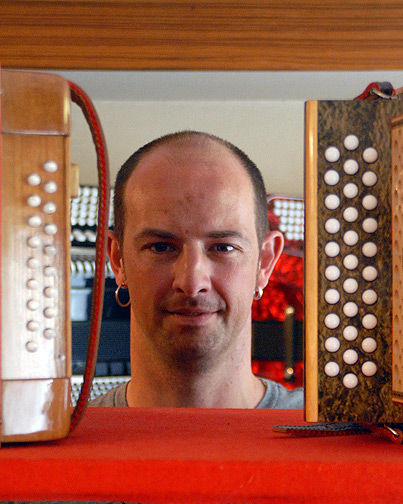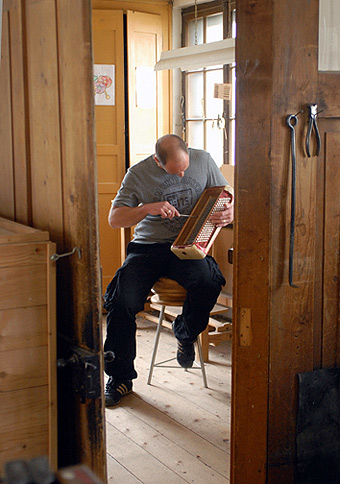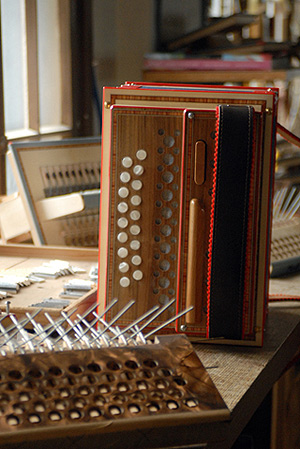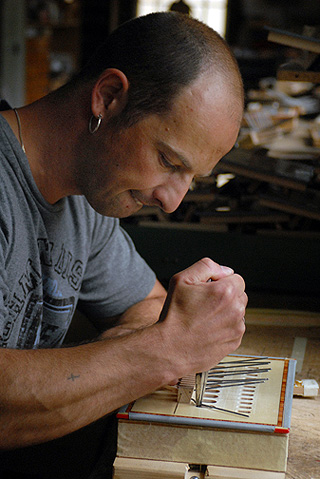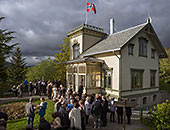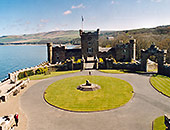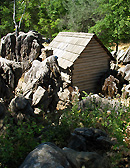 |
 |
|
 |

|
The Eichhorn
Schwyzerorgelfabrik and Musikhaus
Especially now that a ridiculous accordion app exists for the iPad, I crave the real thing, just like a drug. As a result, I decide to fall off the wagon and go straight to the source—the Eichhorn Schwyzerorgelfabrik and Musikhaus, the oldest continuously operating accordion shop in Switzerland. An instrument retail annex adjoins the building, but naturally I’m in the workshop, amidst drill presses, heaps of miniscule metal parts and wooden planks, plus air compressors and other heavy machinery the tasks of which I can’t possibly identify. There are crates of paperwork, hand tools and leftover scraps of cardboard, leather and sheet metal. With soft wooden flooring and bay windows, the entire place exudes a light, airy feel despite the faint smell of sawdust and linseed oil. I fit right in, like an addict who discovers a dope house.
“If someone wants something adjusted, that’s easy,” Christian declares. “I know all the parts.” I look around, noticing that there are no finished accordions anywhere to be seen. “You can see those in the store,” he says, pointing downstairs towards the retail shop next door. Ranging in price from 3000-5000 Swiss Francs, most models are of the three-chord variety and can include anywhere from eight to 96 bass buttons. Gretuer considers himself a craftsman and a repairman, but not a musician. In fact, none of the original Eichhorn makers—from the beginning down through Christian’s dad, Werner—were accordion players themselves. Neither is he. I ask what kind of music he listens to and he says AC/DC. Only then do I imagine an accordion version of Jailbreak. On my way out, I pop into the retail annex and immerse myself in dozens of brand new accordions. Someone once said, “Use an accordion, go to jail.” But I have found my dope house. I am addicted to accordions and I cannot stop. IF YOU GO: |
|
Your tea adventures are especially interesting because I've always associated tea with British etiquette or a bevy of women wearing dainty victorian costumes and sipping tea with their little pinky sticking out. To see Tea from a man's perspective brings new light in a man's psyche. I've been among the many silent admirers of your writings for a long time here at Traveling Boy. Thanks for your very interesting perspectives about your travels. Keep it up! --- Rodger, B. of Whittier, CA, USA
|
|
| ||||
|
| ||||
This site is designed and maintained by WYNK Marketing. Send all technical issues to: support@wynkmarketing.com

|







